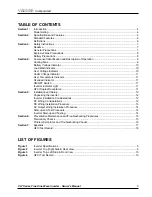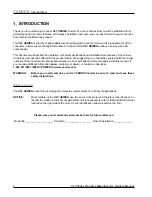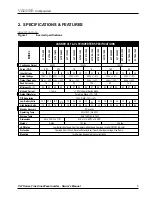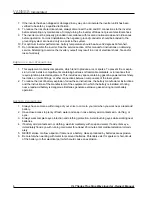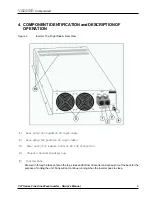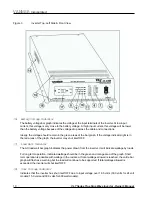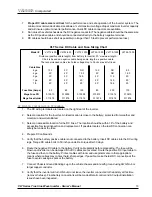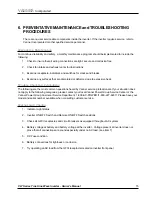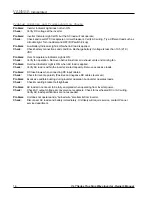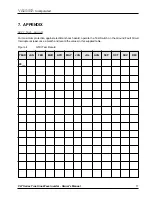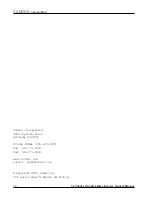
VANNER
Incorporated
VLT Series True Sine Wave Inverter - Owner’s Manual
8
7. If the inverter has been dropped or damaged in any way, do not operate the inverter until it has been
verified to be safe by a qualified technician.
8. To reduce the risk of electrical shock, always disconnect the AC and DC connections to the inverter
before attempting any maintenance. Simply turning the inverter off does not prevent electrical shock.
9. The inverter must be properly grounded in accordance with local and national codes and ordinances
before operation. For most installations, the negative (ground) conductor should be bonded to the
grounding system at one and only one point in the system.
10. For optimum inverter performance, battery temperature should be above 32 degrees Fahrenheit.
11. Do not disassemble the inverter. See the service section of this manual for instructions on obtaining
service. Attempting to service the inverter yourself may result in a risk of electrical shock, fire and/or
loss of warranty.
Explosive Gas Precautions
1. This equipment contains components, which tend to produce arcs or sparks. To prevent fire or explo-
sion, do not install in compartments containing batteries or flammable materials, or in locations that
require ignition protected equipment. This includes any space containing gasoline-powered machinery,
fuel tanks, or joints, fittings, or other connections between components of the fuel system.
2. To reduce the risk of battery explosion, follow these instructions, the battery manufacturer instructions,
and the instructions of the manufacturer of the equipment in which the battery is installed. Working
near a lead-acid battery is dangerous. Batteries generate explosive gases during normal battery
operation.
Battery Precautions
1. Always have someone within range of your voice to come to your aid when you work near a lead-acid
battery.
2. Have close access to plenty of fresh water and soap in case battery acid contacts skin, clothing, or
eyes.
3. Always wear complete eye protection and clothing protection. Avoid touching eyes while working near
batteries.
4. If battery acid contacts skin or clothing, wash immediately with soap and water. If acid enters eye,
immediately flood eye with running cold water for at least 20 minutes. Get medical attention immedi-
ately.
5. NEVER smoke or allow a spark or flame near a battery. Gases produced by batteries are explosive.
6. Be careful when working with metal tools around batteries. Potentials exist for sparks or short-circuit
of the battery or other electrical part which could cause an explosion.



